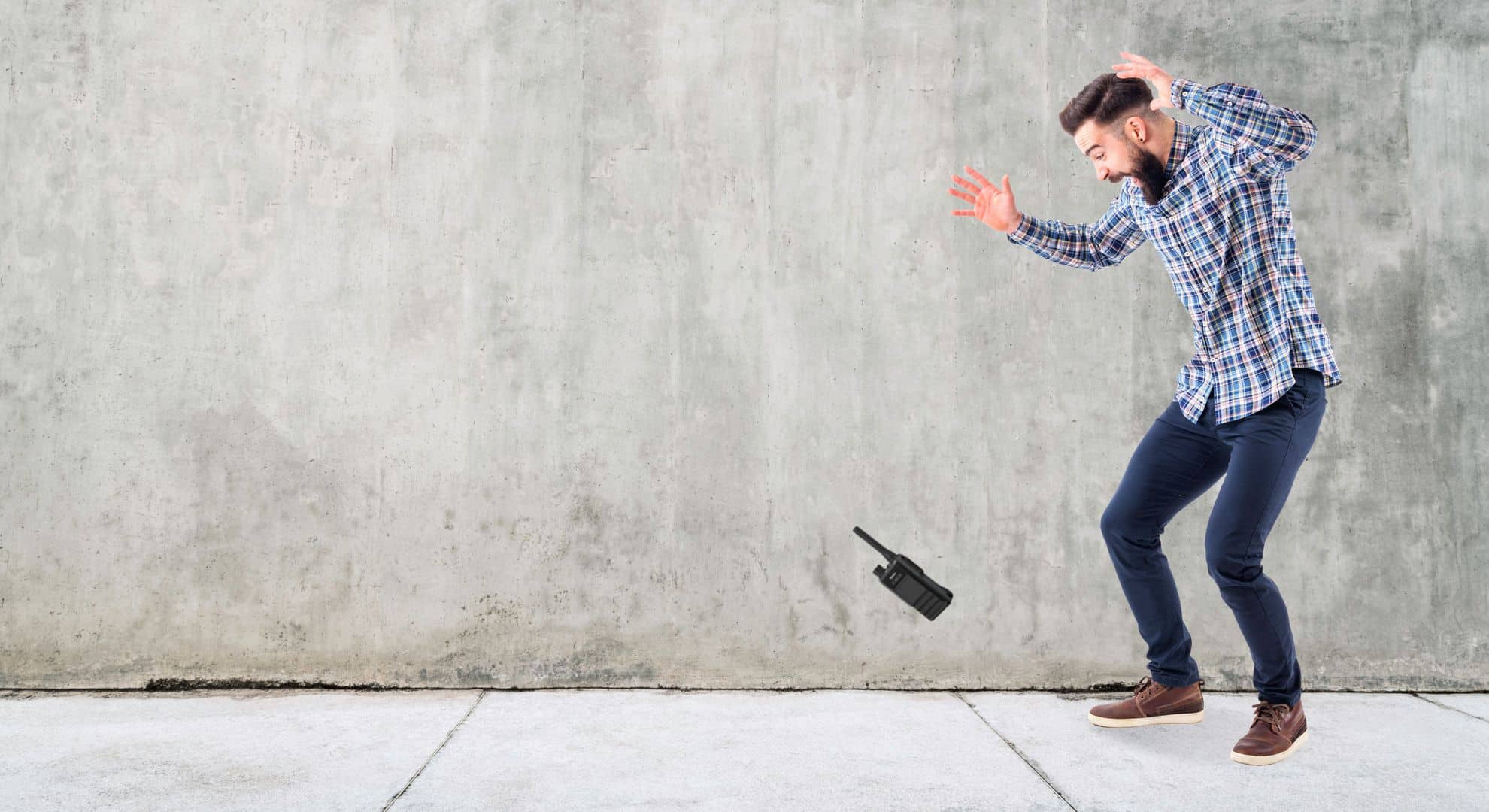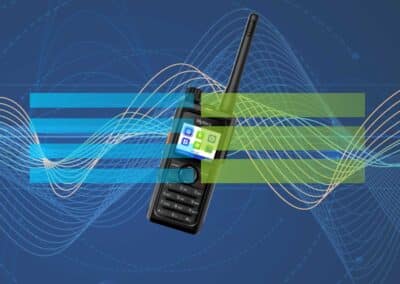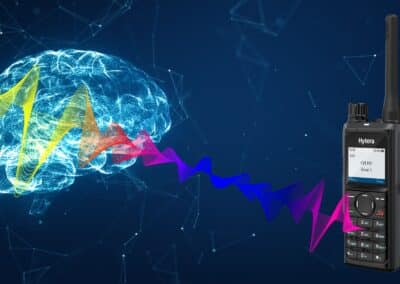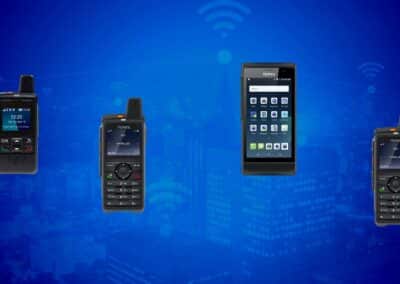What IP Rating and MIL-SDT Compliance do You Need for Your Two-Way Radios?
Your two-way digital radio can be as robust as you need it to be. IP Ratings and Military Standards are used to test and certify that two-way radios can stand up to water, dust, impact, vibration, and other environmental conditions.
In order to determine how durable your radios need to be, you need to do an analysis of the environment in which they will be used. This article will help you understand the IP Ratings and MIL-STD compliance you will require to ensure your radios stand up to your specific work environment.
MIL-STD-810-G
The Military Standard for manufacturing or MIL-STD-810 is a series of performance and manufacturing guidelines set by the US Department of Defense for military and commercial equipment. These guidelines specify allowable parts and environmental condition ranges in which a device must be able to operate to meet compliance.
- Low Temperature
- High Temperature
- Temperature Shock
- Low Pressure
- Impact Shock
- Vibration
- Salt Fog
- Rain
- Dust
- Drop
- Solar Radiation
- Humidity
The latest MIL-STD-810 G is a revision of 810 F and 810 E. The tests and methods are basically the same, but much of the standard has been rewritten to provide a clearer direction.
When selecting a rugged two-way radio, make sure it is tested compliant to the various MIL-STD-810 G tests, and not just ‘designed to meet’ the standard.
Deciding whether you need military standard radios is easy. All Hytera DMR Two-Way Radios and Push-to-Talk over Cellular (PoC) Radios are tested compliant with MIL-STD-810 G, so you automatically get the benefit of robust radios that withstand high humidity, shock, vibration, and extreme temperatures to assure maximum reliability. Hytera DMR and PoC Radios support operational temperature ranges of -22 to +140 degrees Fahrenheit (-30 to +60 degrees Celsius).
See how Hytera radios undergo rigorous IP and MIL-STD testing:
IP Ratings
IP standards (Ingress Protection), were established by the International Electrotechnical Commission (IEC). The IP rating system provides a two-digit code, against which the degree of protection afforded to a device like a two-way radio enclosure, for the entry of solids and liquids which could damage the internal electrical circuitry.
All Hytera radios, designed for professional and commercial purposes, are subjected to rigorous testing to determine their IP rating.
An IP rating will consist of two digits in a format such as IP54 or IP67.
The first digit in an IP rating will be a number between 0-6 and indicates the degree of protection from ingress of solid objects, and dust or dirt.
The second digit in an IP rating will be a number between 0-8, denoting the quality of resistance to moisture ingress at varying intensities, angles, depths and pressures of exposure or immersion.
Dust and Dirt Ingress
Hytera manufactures dirt and dustproof radios, for those that work in harsh and occasionally dirty conditions. Some radios simply will not work if they get covered in dirt and dust particles, or if they do continue to work, you cannot really hear much as the sound is compromised.
The first IP digit indicates how well the design resists foreign materials getting into a device:
| IP Level | Description |
| 0 | No special protection |
| 1 | Protected against objects greater than 50 mm in diameter |
| 2 | Protected against objects greater than 12.5 mm in diameter |
| 3 | Protected against objects greater than 2.5 mm in diameter (tools/thick wires) |
| 4 | Protected against objects larger than 1mm (wires/screws or large ants) |
| 5 | Dust protected – not entirely prevented but cannot enter in sufficient quantity to interfere with the operation of the equipment |
| 6 | Complete protection against dirt and dust |
Which IP Dust Ingress Level is Right for You?
| Work Environment | Recommended IP Rating |
| Occasional dust, or work with small particles (metal shavings, small assembly parts) | 4 or higher |
| Consistent presence of dirt and dust, such as construction, manufacturing, agriculture, cleaning services, and mining | 5 or higher |
Water Ingress
Sometimes radios can get dropped in water, especially if you are working in a marine environment, or where there is a lot of standing water. It’s so easy to accidentally drop a radio, which is why if you work near water, you should probably invest in robust waterproof radios.
Rain and snow are also a problem for people working outside, sometimes adverse weather conditions can get in the way of communications, but that won’t happen if you have a reliable waterproof radio.
The second IP digit shows resistance to water ingress:
| Level | Description |
| 0 | None |
| 1 | Protected against dripping water (vertically falling drops) |
| 2 | Protected against dripping water (when tilted at 15 degrees) |
| 3 | Protected against spraying water (at any angle up to 60 degrees) |
| 4 | Protected against splashing water |
| 5 | Protected against low-pressure water jets |
| 6 | Protected against powerful water jets and waves |
| 7 | Protected against immersion for up to 30 minutes at a depth of one meter |
| 8 | Protected against prolonged immersion at a depth of 1.5 meters or greater (Hytera has successfully tested immersion for 4 hours at a depth of 2 meters) |
Notes: Liquid ingress testing refers to freshwater only. The IPx8 rating of depth and time of submersion can be specified by the manufacturer and must be greater than the IPx7 rating.
Which IP Water Ingress Level is Right for You?
| Work Environment | Recommended IP Rating |
| Occasional exposure to falling water, rain or water spills | 4 or higher |
| Consistent presence of spraying water, such as construction, manufacturing, agriculture, cleaning services, and mining | 5 or higher |
| Presence of standing water, and the radio may be dropped into water | 7 or higher |
Hytera IP Rated Two-Way Radios
The good news is that with Hytera, you can guarantee that your radio will always provide a base level of water and dust protection, as all our devices achieve at least the IP54 rating.
Where equipment is operated outdoors or in more challenging industrial environments, our premium radios achieve some of the highest IP ratings in the industry, IP67, and even IP68, protecting against full water submersion at 2 meters for up to 4 hours.
Radios for Corporate Environments
In most corporate environments, there is no need for rugged or IP rated radios. Corporate environments are often much lower risk, and the radios are being used for communication, organization, and productivity rather than safety, survival, and highly dangerous situations. But having a rugged radio ensures they will still last after being dropped, or accidentally exposed to rain or moisture.
Contact Hytera to learn more about IP-Rated and MIL-STD two-way radios.



